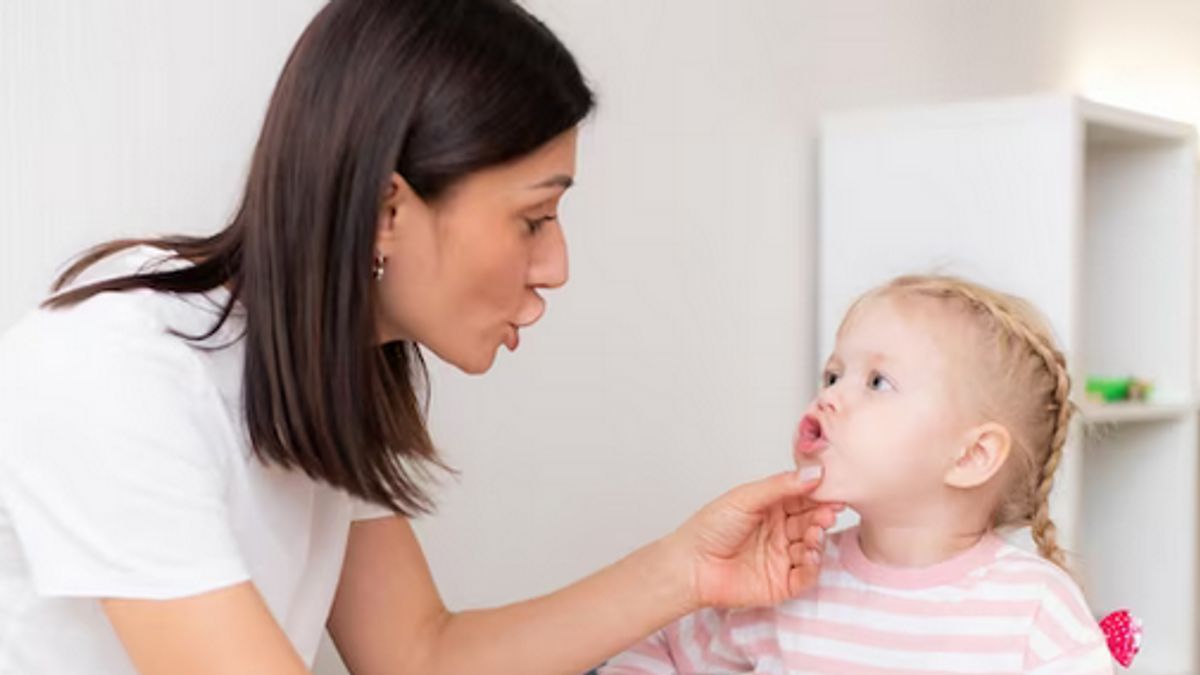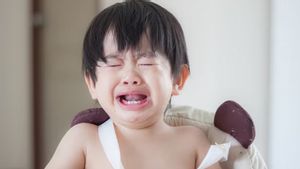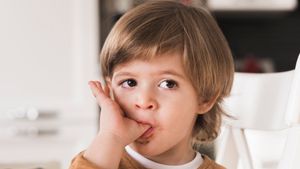YOGYAKARTA 'It's impossible for you to scream when you're bitten by a baby or toddler. Toddlers at the age of 4 or earlier, it's common that they like to bite. This helps them get rid of pain when they grow teeth or express strong feelings. Such as fear, frustration, or excessive stimulation.
You can cope with a more controlled bite response and don't scream at them or scold them. You can also do the following tips to overcome the child's response when growing teeth, too stimulated, feeling cornered, and expressing yourself when overwhelmed by biting.
If your child bites, do your best. Take a deep breath before you respond. Use a loud and calm voice, and maintain eye contact while re-declaring your rules about biting. For example, saying, 'I know you're upset, but it's not right if you touch me. Don't bite.'
If toddlers bite other children, separate the children and make sure they don't bite each other. Provide first aid if necessary.
Because the human mouth is full of bacteria that can cause infection. So if the bite doesn't hurt the skin, it needs to be washed immediately. Especially if it causes a wound, clean the area and cover it with sterile bandages. If the little one is biting, launches Baby Center, Sunday, September 17, it is recommended to have a doctor check. You can also follow some basic tips in handling child bites.
Don't blame, scream, or punish. Parents must convey in simple and straightforward language. Tell them that it hurts and they shouldn't do it. It's important to understand, until the child is about 3 years old, they don't understand the concept of punishment. They tend to respond to clear and firm boundaries.
If you respond to a child's bite, don't hit it. Research shows that hitting is not effective in improving behavior and actually increases anger and aggression in children. So hold back with long breaths, and say straightforward and simple sentences so that the bite weakens.
This may be difficult to do, so that it is more emotional to scream or stop the bite by force. But you need to remember how much you love your baby. Maybe when they bite they are frustrated, make sure they feel safe. Show affection and teach how to express anger with a language that doesn't hurt others.
After the child feels calm, talk together about what happened. Ask if he needs help or feels anything disturbing. You can also provide a simple game to deal with situations like this.
VOIR éGALEMENT:
In addition to how to deal with children like to bite, such as the explanation above, parents need to recognize when children give a bite response. After a while, you may recognize situations that encourage children to bite and be better prepared to intervene without getting angry, hitting,teria, and punishing.
The English, Chinese, Japanese, Arabic, and French versions are automatically generated by the AI. So there may still be inaccuracies in translating, please always see Indonesian as our main language. (system supported by DigitalSiber.id)















